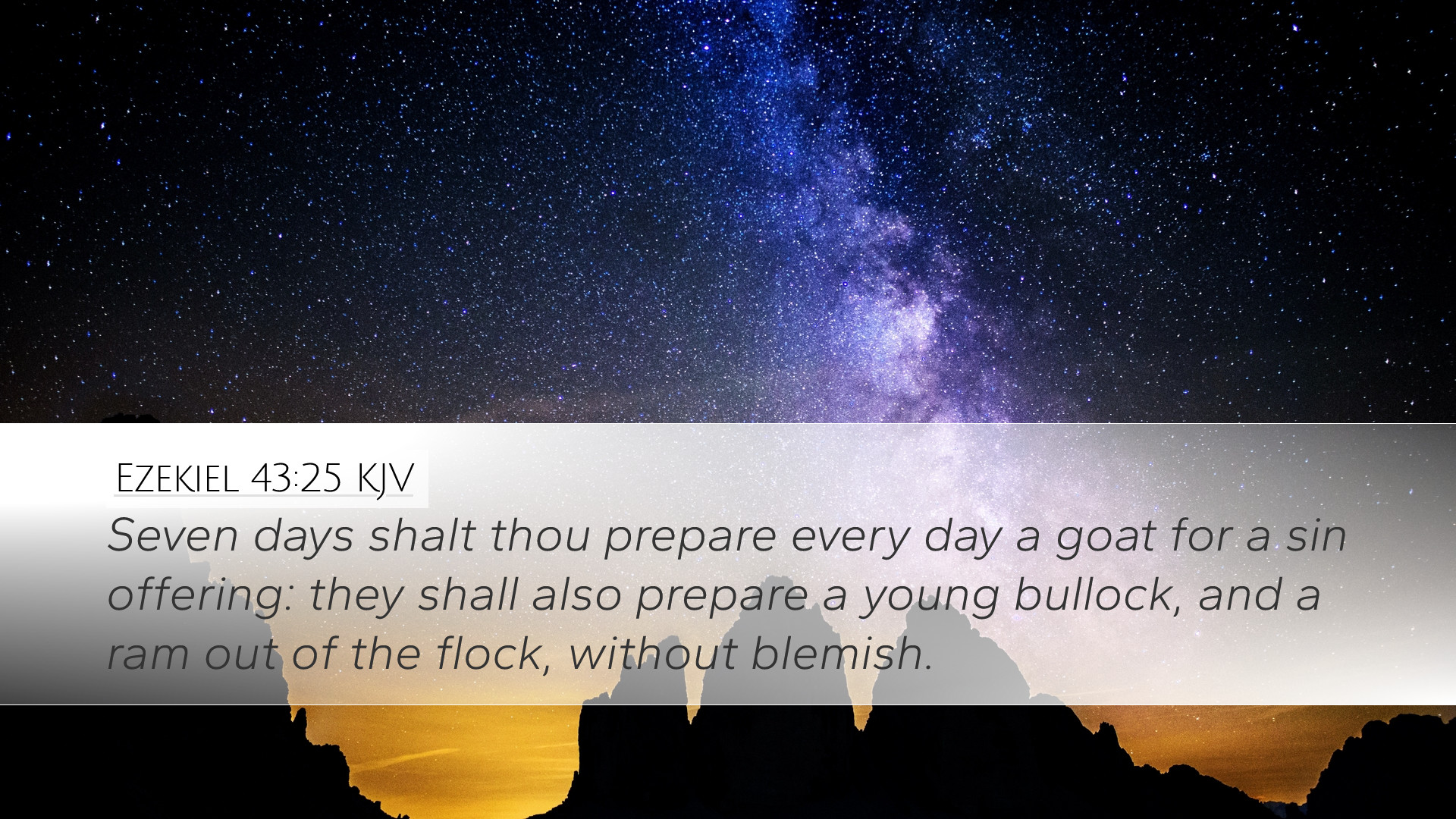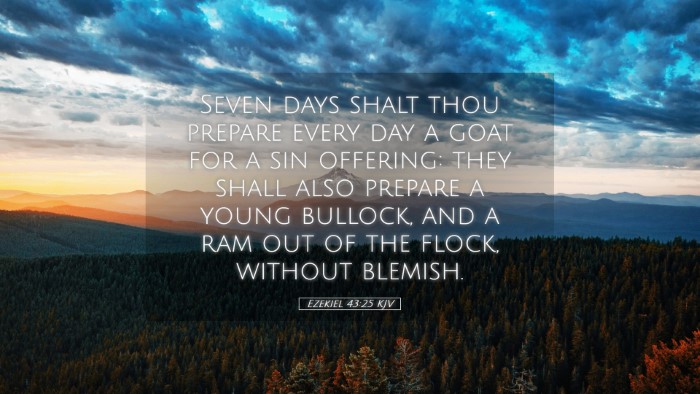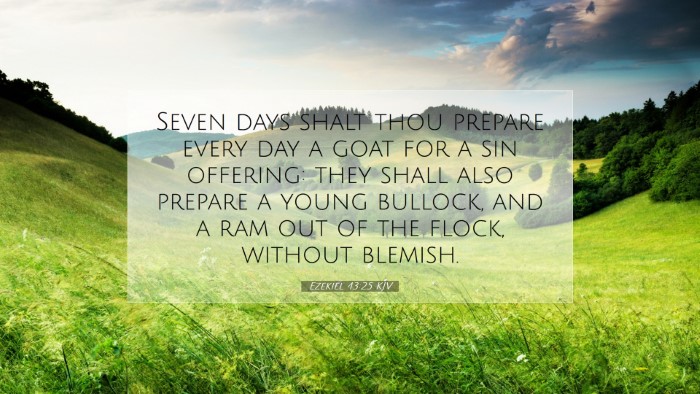Ezekiel 43:25 - Commentary and Insights
Ezekiel 43:25 states, "And seven days shalt thou prepare every day a goat for a sin offering: they shall also prepare a young bullock, and a ram out of the flocks, without blemish." This verse, situated in the context of the temple vision given to Ezekiel, signifies the importance of ritual purity and the restoration of sacrificial worship in the life of Israel post-exile.
Contextual Background
The book of Ezekiel, written during the Babylonian exile, reveals the prophetic insights concerning the future restoration of Israel, emphasizing God's holiness, judgment, and grace. This chapter introduces the vision of a new temple, shedding light on the practices which would reinstate Israel’s covenant relationship with God.
Significance of Sacrifices
From an interpretative standpoint, the sacrifices outlined in Ezekiel 43:25 signify not just ritual, but a deeply spiritual process of atonement and renewal. The Jewish sacrificial system was meant to reflect an understanding of sin, its consequences, and the necessity of divine mercy.
Matthew Henry's Insight
According to Matthew Henry, the number of days specified (seven) reflects a period of preparation symbolizing completeness and divine order. His commentary suggests that this preparation time served to sanctify the people, as they engaged in the sacrifices purposed to cleanse them from the stains of sin accumulated during the period of exile.
Albert Barnes' Perspective
Albert Barnes comments on the significance of the animals to be offered. The goat for a sin offering is indicative of the need for atonement. In Israelite sacrificial law, the goat represented the transfer of sin onto the offering, enabling the people to come back into fellowship with God. The verse emphasizes the necessity of preparing these offerings diligently, signifying readiness and the reverence owed to the process.
Adam Clarke's Analysis
Adam Clarke highlights the aspect of these offerings in the context of restoration. He notes that the sacrifices indicate a new beginning for a people who had experienced tremendous dislocation and loss. Clarke connects the offerings with the themes of repentance and divine forgiveness, allowing theological reflection on how such practices are not merely routine but are designed to foster a true heart of worship among the people.
Theological Reflections
In examining Ezekiel 43:25, several theological reflections emerge:
- The Holiness of God: The meticulous nature of the sacrificial rites underscores God's holiness and the gravity of sin, which demands a response from His people.
- The Role of the Priesthood: The chapter places emphasis on the role of priests in facilitating access to God through sacrificial offerings, highlighting the vital mediatory role they represent.
- Restoration through Atonement: The offering serves as a pivotal means of restoring the covenant relationship between God and Israel, pointing towards the future fulfillment in Christ.
Practical Implications for Today
The principles drawn from Ezekiel 43:25 resonate deeply within contemporary faith communities:
- Preparation for Worship: Just as the Hebrew people were to prepare their offerings, today’s believers are called to prepare their hearts for worship, reflecting on their relationship with God.
- Understanding Atonement: This verse invites Christians to contemplate the gravity of sin and the profound gift of atonement fulfilled in Christ—the ultimate sacrifice.
- Inclusivity of Worship: The sacrificial system was designed for communal representation before God, reminding churches of the importance of communal worship and corporate repentance.
Conclusion
Ezekiel 43:25 serves as a reminder of the ongoing need for sacrificial atonement and the return to holiness. With insights derived from public domain commentaries, it becomes evident that the verses not only informed the community of ancient Israel but they also hold transformative truths relevant for the church today. The call to repentance, preparation for worship, and recognition of God’s holiness remain vital as believers navigate their faith journey.


